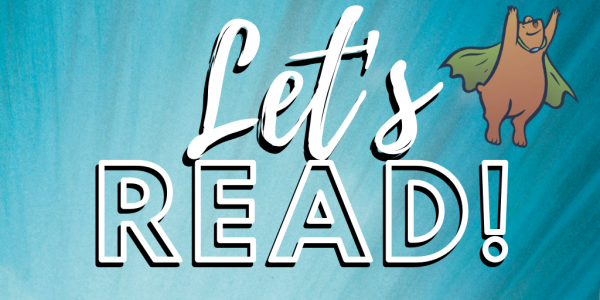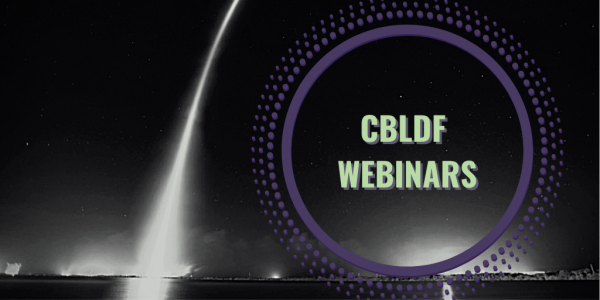CBLDF is committed to helping parents, educators, and students turn challenges into triumphs in remote learning situations. With the temporary closing of schools and libraries, our nation faces unprecedented obstacles to using traditional learning environments and strategies. As a nonprofit that defends First Amendment rights for the comics community and beyond, CBLDF is devoted to helping educators and librarians incorporate comics into their classrooms and collections. That’s why we have a large variety of existing resources that can be utilized by students, parents, and teachers in any setting to take comics and graphic novels from online or around the house and turn them into exemplary educational opportunities. Below you will find links to current CBLDF resources that can be downloaded or read online for free. In the coming days, we will be adding new resources, always free, devised specifically for remote learning environments, so stay engaged with CBLDF on Facebook, Twitter, and Instagram to get help every day making the most out of your home library.
Online Literacy Resources
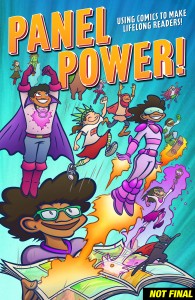
Panel Power, a CBLDF resource that provides an introduction to comics and background on why they’re good for kids. A tool for battling misconceptions about the format and filled with information about the benefits of comics, activities, and reading recommendations for engaging kids with comics, Panel Power is an essential resource for retailers, educators, librarians, and parents!
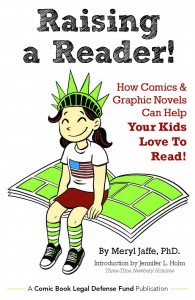
Raising a Reader! How Comics & Graphic Novels Can Help Your Kids Love To Read! is a CBLDF resource for parents and educators about the learning benefits of comics! This resource is written by Dr. Meryl Jaffe, with an introduction by three-time Newbery Award honoree Jennifer L. Holm (Babymouse, Squish) and art by Eisner Award winner Raina Telgemeier (Smile, Drama) and Eisner Award nominee Matthew Holm (Babymouse, Squish). Graphic design was handled by Brooklyn-based designer David Herman. Raising A Reader! was made possible by a grant from the Gaiman Foundation.
Using Graphic Novels in Education is an ongoing feature from CBLDF that is designed to allay confusion around the content of graphic novels and to help parents and teachers raise readers. In this column, we examine graphic novels, including those that have been targeted by censors, and provide teaching and discussion suggestions for the use of such books in classrooms.
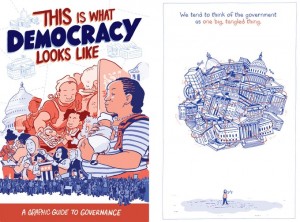
This Is What Democracy Looks Like maps out how the US government was designed to foster democracy and encourages readers to become more informed and engaged citizens. Produced by the Eisner award-winning Center for Cartoon Studies, this comic is part of a major campaign promoting civics that will appeal to readers in and out of classrooms! This comic is the centerpiece of a national campaign for Constitution Day organized by the Center for Cartoon Studies with CBLDF and other major education and rights organizations. The free teaching guide includes lesson plans with ideas for technology extensions/modifications that are helpful for adapting lesson plans to remote learning situations.
CBLDF Discussion Guides can be used by librarians, educators, retailers, or parents to lead a conversation about a graphic novel. In each guide, you will find the following:
-
Synopsis: A brief summary of the major plot points in the graphic novel
-
Themes: The overarching ideas that the creator(s) express in the graphic novel
-
Reasons Challenged: The reasons why people have tried to censor the book
-
Suggested Age Range: The age group for which the book is most likely suitable
-
Discussion Questions: Tiered questions organized by cognitive complexity, from basic recall to higher-order thinking
-
Activities: Projects and activities to take the conversation about graphic novels beyond the library or classroom and to encourage greater engagement with comics
Comic Book Club Handbook, a resource produced by Comic Book Legal Defense Fund in collaboration with Comic-Con International, provides information on how to start and make the most of book clubs for comics and graphic novels. Designed for librarians, retailers, and individuals alike, the Comic Book Club Handbook provides proven strategies for getting started, selecting books, engaging your community, managing discussions, and much more, including a helpful table of books to get you started.
The Manga Book Club Handbook is an invaluable resource, created in partnership with VIZ Media, that will help you start and make the most of book clubs for manga! The Manga Book Club Handbook lays out the basics of manga and provides the tools you need to start a book club for manga, including suggestions for remote book club meetings and readings to get you started!
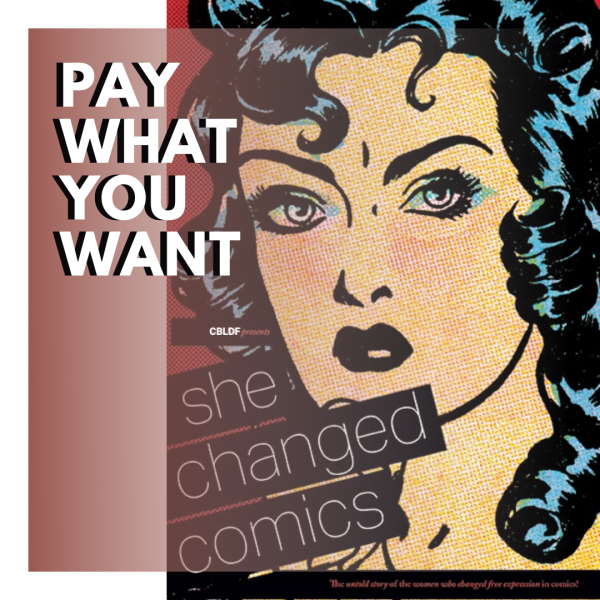
CBLDF Presents: She Changed Comics is the definitive history of the women who changed free expression in comics, with profiles of more than 60 groundbreaking female professionals and interviews with the women who are changing today’s medium, including Raina Telgemeier, Noelle Stevenson, G. Willow Wilson, and more! This publication started as a Women’s History Month series on CBLDF’s Tumblr, and links to the profiles from that series can be found at the bottom of the landing page for this publication. In addition, the page also includes teaching guides. This is an excellent resource for educators looking for online reading material to support their study of Women’s History Month.

The CBLDF Banned Books Week Handbook is a free resource that gives you the scoop about what comics are banned, how to report and fight censorship, and how to make a celebration of Banned Books Week in your community!
Get Tips From the Best with CBLDF Webinars
Teaching Tolerance & Understanding with Gene Luen Yang— This webinar features a discussion between Gene Luen Yang, the National Book Award-nominated author of American Born Chinese, and Betsy Gomez, the Banned Books Week Coalition coordinator and editor of CBLDF’s book about the women who changed free expression in comics, CBLDF Presents: She Changed Comics. In this webinar, Yang draws from his career as a celebrated author, ambassador, and teacher to address how comics can help students attain a broader view of the world and spark a lifelong love of reading and how teachers and librarians can respond to challenges to comics and overcome barriers to using them.
Using Comics to Teach Tough Topics—This webinar brings together a panel of comics creators, publishers, and educators to discuss how comics are a powerful tool for helping young people understand the more difficult parts of growing up. Helping young audiences come to terms with the difficult topics and complex concepts can be challenging. In this program, we present fresh ideas for using comics to teach social justice, identity, and freedom of expression; suggest titles that address the tough topics affecting young people including discrimination, bullying, racism, and disability; and provide strategies for addressing the challenges that may arise when incorporating these comics into course curriculum.
Take PRIDE in Comics: The Challenges Facing LGBTQ+ Content— In celebration of PRIDE month, we asked a panel of creators, educators, librarians, and retailers to discuss the challenges facing LGBTQ+ comics. During this informative session, cartoonist Paige Braddock, the Eisner-nominated creator of Jane’s World; historian, educator, and creator Justin Hall, the editor of award-winning anthology No Straight Lines: Four Decades of Queer Comics; librarian and activist Valerie Acklin, a member of the American Library Association’s Gay, Lesbian, Bisexual, and Transgender Round Table (GLBTRT); and retailer Katie Proctor, the owner of Portland, Oregon’s inclusive comic book store, Books With Pictures, discuss the history of censorship of LGBTQ+ comics, why LGBTQ+ comics are an important part of any library or classroom collection, and what we can do to defend LGBTQ+ content from censors.
Using Comics in the Classroom: Practical Tools for Developing Curriculum— Although comics are an incredible tool for engaging students in the classroom, the educational benefits of this medium are still unknown to many teachers, administrators, and parents. Join CBLDF and a panel of creators and teachers to learn how comics can be used to enhance learning and encourage student participation. Get real-world suggestions for integrating comics into your curriculum, from expanding lesson plans to include comic-based activities to developing units devoted to the study of the medium.
